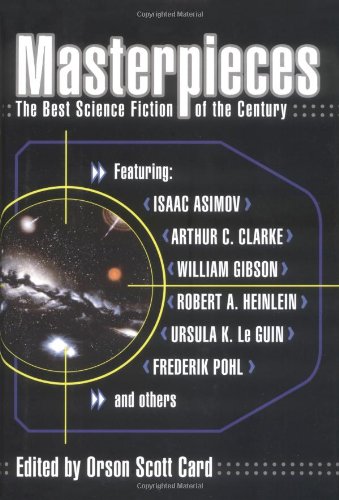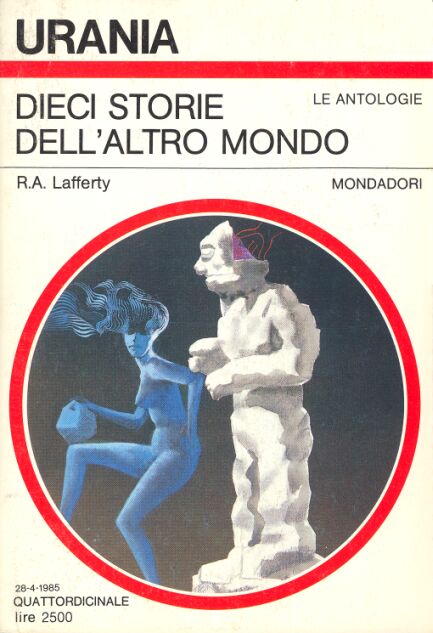Short Stories Eurema's Dam
Eurema's Dam
—R. A. Lafferty
-
- · 1972
"He was about the last of them. What? The last of the great individualists? The last of the true creative geniuses of the century? The last of the sheer precursors? No. No. He was the last of the dolts. Kids were being born smarter all the time when he came along, and they would be so forever more. He was about the last dumb kid ever born." —R. A. Lafferty
“This “last of the-dolts” is described as inventing machines out of a well of absolute incompetence. Inferior to his fellow-men, intimidated by his grandest contraptions, he decided to end it all -- until a little-machine he built to have hunches (hence his true mechanical counterpart) shows him that the apparently-superior world is really a warren of fair game, and promises plenty of fun in the plucking.”
- —Sheryl Smith, Riverside Quarterly Vol. 7 No. 2 (1982)
“No normal or reasonable or balanced or well-adjusted person is going to attempt the making of a story or a tune or a statue or a poem; he'll have no need for any such abonormal activity. A person has to be somehow deficient or lacking in person or personality or he will not attempt these things. He must be very deficient or lacking if he will succeed at all in them. Every expression in art or pseudo-art is a crutch that a crippled person makes and donates to the healthy world for its use (the healthy world having only the vaguest idea that it even needs such crutches).
... One of the legends, unwritten from the beginning and maybe unwritten forever, is about a Quest for the Perfect Thing. But it is really the quest for the normal thing. Can you find, anywhere in the world, behind or before or present, even one person who is really normal and reasonable and balanced and well-adjusted? This is the Perfect Thing, if it or he or she is ever found, and if ever found there will be no further need for any art or attempted art, good or bad.”- —R.A. Lafferty, At The Sleepy Sailor (1979)
- · 1975 Seiun Winner, Best Foreign Short Story · 2001 Orson Scott Card, The Best Science Fiction of the Century · 1973 Hugo Winner, Best Short Story · 1973 Locus 16th, Best Short Fiction
- · Trent Walters (2015) · Andrew Ferguson (2013) · Daniel Petersen (2012)
- · Search
Copyright & Licensing: If you submit a comment, you agree to license the original text of your comment as CC-BY-4.0, allowing others to share and adapt your comment for any purpose, even commercially, as long as attribution is given and changes are indicated. Please see the full license.
Literary criticism of Lafferty has been sparse, and valuable essays remain out of print due to unclear license or estate status. The CC-BY license provides an option for Lafferty scholars to republish and critique your writing, and enables Lafferty archivists to migrate comments to new platforms and media.




